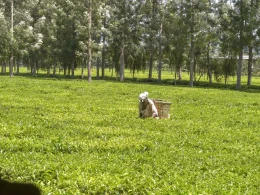The European Union’s Council has adopted a new regulation aimed at promoting sustainable farming practices across the continent. The Farm Sustainability Data Network regulation aims to improve the environmental, social, and economic sustainability of the EU’s agricultural sector.
The regulation will establish a network of data providers, including farmers, researchers, and industry stakeholders, to share information on sustainable farming practices and their impact on the environment.
According to the European Commission, the regulation will help to reduce the EU’s carbon footprint, protect biodiversity, and promote fair competition in the agricultural sector.
The regulation will also establish a system for monitoring and reporting on the environmental impact of farming practices, allowing for more effective policy-making and decision-making.
The European Union’s agricultural sector is a significant contributor to the continent’s greenhouse gas emissions, and the new regulation aims to reduce these emissions by promoting sustainable farming practices.
The regulation will also promote the use of precision agriculture, which uses advanced technologies such as drones and satellite imaging to optimize crop yields and reduce waste.
The European Commission has stated that the regulation will help to create a more sustainable and resilient agricultural sector, which will benefit both farmers and consumers.
The regulation will come into effect in 2025, and will apply to all EU member states.
The adoption of the Farm Sustainability Data Network regulation is a significant step towards creating a more sustainable and environmentally-friendly agricultural sector in the European Union.
The regulation will also promote the use of renewable energy sources, such as solar and wind power, to power farm equipment and reduce dependence on fossil fuels.
The European Union’s agricultural sector is a significant contributor to the continent’s economy, and the new regulation aims to promote sustainable farming practices that will benefit both farmers and consumers.
The regulation will also establish a system for certifying sustainable farming practices, allowing consumers to make informed choices about the products they buy.
The adoption of the Farm Sustainability Data Network regulation is a significant step towards creating a more sustainable and environmentally-friendly agricultural sector in the European Union.
The regulation will also promote the use of organic farming practices, which do not use synthetic pesticides or fertilizers, to reduce the environmental impact of farming.
The European Union’s agricultural sector is a significant contributor to the continent’s biodiversity, and the new regulation aims to promote sustainable farming practices that will benefit both farmers and consumers.
The regulation will also establish a system for monitoring and reporting on the social impact of farming practices, allowing for more effective policy-making and decision-making.
The adoption of the Farm Sustainability Data Network regulation is a significant step towards creating a more sustainable and environmentally-friendly agricultural sector in the European Union.
The regulation will also promote the use of advanced technologies, such as artificial intelligence and the Internet of Things, to optimize farm operations and reduce waste.
The European Union’s agricultural sector is a significant contributor to the continent’s economy, and the new regulation aims to promote sustainable farming practices that will benefit both farmers and consumers.
The regulation will also establish a system for certifying sustainable farming practices, allowing consumers to make informed choices about the products they buy.
The adoption of the Farm Sustainability Data Network regulation is a significant step towards creating a more sustainable and environmentally-friendly agricultural sector in the European Union.
The regulation will also promote the use of renewable energy sources, such as solar and wind power, to power farm equipment and reduce dependence on fossil fuels.
The European Union’s agricultural sector is a significant contributor to the continent’s biodiversity, and the new regulation aims to promote sustainable farming practices that will benefit both farmers and consumers.
The regulation will also establish a system for monitoring and reporting on the environmental impact of farming practices, allowing for more effective policy-making and decision-making.
The adoption of the Farm Sustainability Data Network regulation is a significant step towards creating a more sustainable and environmentally-friendly agricultural sector in the European Union.









